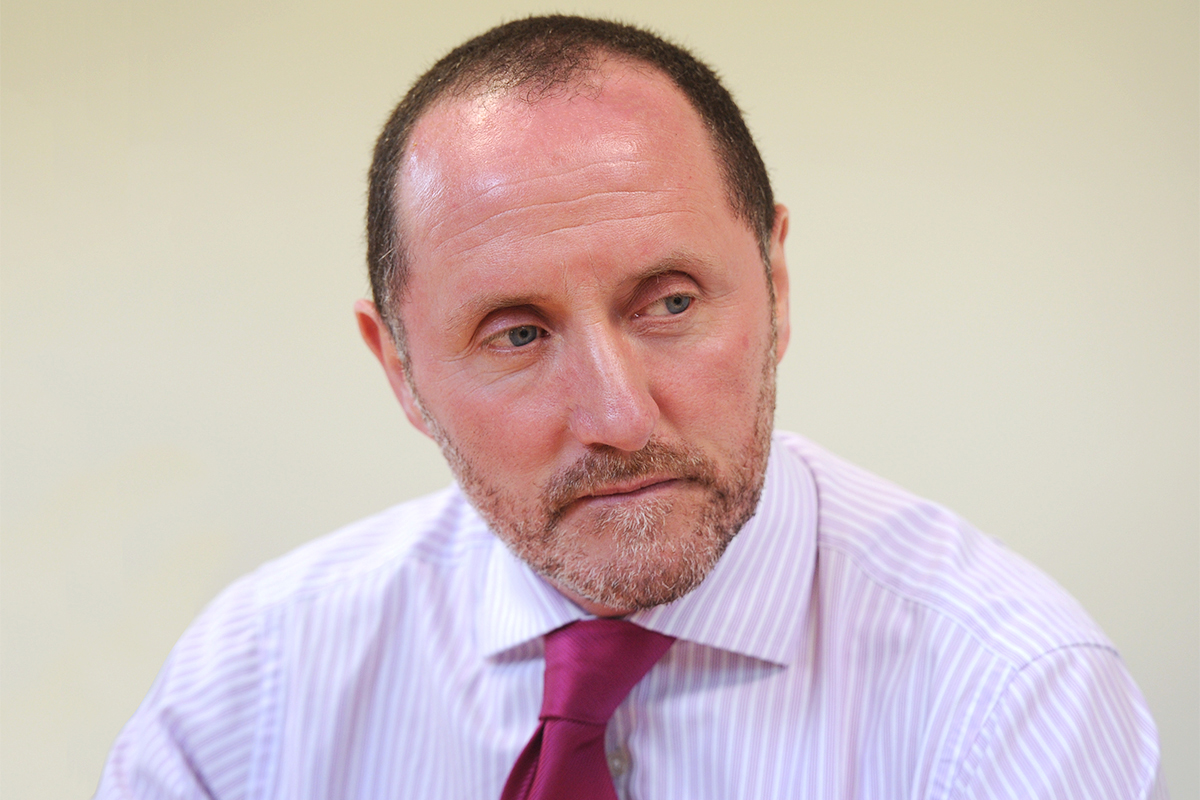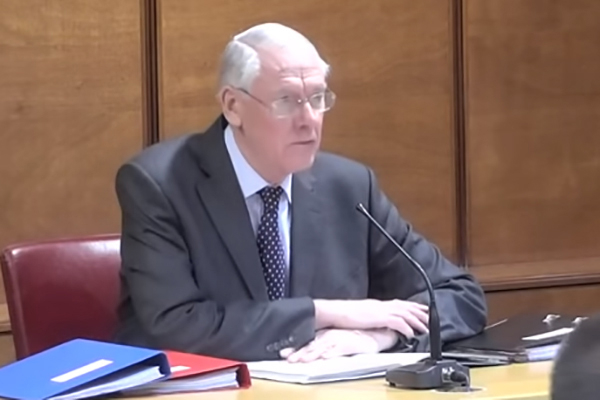You are viewing 1 of your 1 free articles
Our predictions for the year ahead
Inside Housing’s news team takes a look at what 2018 has in store for the housing sector
2017 was a year many in social housing are unlikely to forget in a hurry.
From Grenfell, to the Supported Housing u-turn, a new government and rent settlement certainty, the year was eventful to say the least.
But what will 2018 hold?
Our award-winning news team attempts to predict what may happen in housing over the next 12 months.
Social housing green paper
Housing minister Alok Sharma has been meeting tenants up and down the country to listen to their concerns and inform the government’s work on a new Social Housing Green Paper.
When he launched these plans last September, communities secretary Sajid Javid said the paper would be a “wide-ranging, top-to-bottom review” of the issues facing the social housing sector and will be the “most substantial report of its kind for a generation”.
Social landlords should watch with interest – changes in particular to the way tenant voices are heard can be expected, which could have an impact on regulation and governance.
A new regulator for England
Talk of the green paper leads on to another major story: the English social housing regulator has been due to split away from the Homes and Communities Agency for many months and this should happen in 2018.
How it will change and what new powers it will have will almost certainly be influenced by the new pressure for accountability following the Grenfell tragedy.
A beefed-up role for consumer regulation from the current light-touch regime seems a fair bet.
Homelessness Reduction Act
New legislation requiring councils to prevent people becoming homeless will come into force in April.
There is no doubt that this government is under substantial pressure over homelessness – towards the end of 2017, figures revealed the overall number of homeless households has risen 65% since 2010 and the Public Accounts Committee branded ministers’ efforts to tackle it “unacceptably complacent”.
This new legislation is supposed to turn the tide and has been welcomed by experts, but funding is a sticking point.
Councils have warned that the £72m to cover the costs is woefully inadequate, especially in areas of high demand. If things start to go wrong, expect a battle over who is to blame.
The Grenfell Tower Inquiry
The inquiry into the Grenfell Tower disaster will get fully underway in 2018 and it is likely to be a harrowing and difficult process.
There is an urgent need for a clear understanding of what went wrong and why, and strong demand from the public that those responsible for the mistakes are held to account.
Expect a focus on fire safety more broad than cladding – what was wrong with the inside of the building and the response.
This should be seismic for the sector’s approach to fire safety and is unlikely to pull its punches.
Universal Credit
The government was reeling over Universal Credit and made small concessions towards the end of the year over the waiting period for the first payment.
But this is a debate that is not going anywhere.
As the roll-out widens, the pressure will only intensify and the government’s political weakness means it will favour reforms over damaging parliamentary defeats.
Expect the policy to continue to be a political hot potato throughout the year.
Around the Isles
Rebecca Evans
In Wales, former social services and public health minister Rebecca Evans replaced the late Carl Sargeant as the Welsh Government’s portfolio holder for housing in November.
In her first address to the sector, she promised to continue her predecessor’s legacy.
She has big shoes to fill and it will be interesting to see how she sets about the task of meeting the 20,000 affordable homes target as housing associations strive to almost double their output.
As Northern Ireland approaches a full year without a functioning government, rumours of a return to direct rule from Westminster gain momentum.
Whoever eventually takes back political control of the region – whether in Stormont or otherwise – will have a legislative mountain to climb to make up for lost time.
There are yet more tortuous times ahead for the sector as it is forced to play catch-up with the impacts of welfare reform and Brexit.
In Scotland, a major overhaul of the planning system will get underway next year, following the Scottish Government placing a bill in parliament in recent weeks.
Long-awaited legislation to apply the Freedom of Information Act to housing associations will also face Holyrood’s scrutiny.
Right to Buy
A pilot scheme of the extension of the Right to Buy to housing associations is set to run in the Midlands from July. This will be a one-year pilot and was initially supposed to test all areas of the extension – including portability of discounts.
This will provide vital data about demand. It is worth watching government’s comments closely for any sign of reluctance to roll the scheme out more widely.
The traditional Right to Buy – for council housing tenants – may also come into the spotlight.
In March, the latest statistics are likely to show the government is falling behind its replacements pledge for the first time. This could drive reforms to the scheme.
The key players

Gavin Barwell
A surprise inclusion, considering he lost his parliamentary seat and his position as housing minister at the election, but Mr Barwell has not gone far.
His elevation to Theresa May’s top team can be linked fairly directly to the prime minister making housing a personal mission and various policy changes – not least the ditching of the Local Housing Allowance cap for social housing and the funding of social rent for the first time since 2010.

Ruth Cooke
Midland Heart’s chief executive will this year take over as the boss of Clarion, the UK’s largest housing association.
In a year when social housing and social landlords are likely to be under the spotlight like never before, Ms Cooke represents a fresh new voice at the very top tier of the sector.

Alok Sharma
Alok Sharma – who has kept a fairly low profile in his first six months as housing minister – has a big year.
The Reading MP has been on the road hearing tenants’ views. He will be expected to use this to underpin the Social Housing Green Paper, which must offer an answer to boosting tenant engagement in a meaningful way.
Those who have met Mr Sharma describe him as an attentive politician who is willing to listen and learn.
Now he will need to put that learning to use.

Grenfell United
The grassroots group formed out of survivors of the tragedy and the bereaved is an organised, dignified, non-partisan organisation that commands increasing respect across the political spectrum. As the inquiry and the response to the disaster get underway, politicians will scramble for the seal of approval from Grenfell United, giving the group significant influence.
What the sector expects

“The UK government will remain distracted by Brexit, and despite various initiatives announced, there will be little real change in terms of housing policy and outcomes.
Post-Grenfell housing regulation will acquire a harder edge in terms of safety and compliance.
The very large associations will use their new-found clout to get some serious homebuilding underway, with others following their lead, but affordable and social rent completions will not rise significantly until 2019.”
James Tickell, partner, Campbell Tickell

“Change is coming for engagement and it can, and must, be a change that leads to tenants’ views being at the centre of landlord decision-making and the sector re-embracing its social purpose. Anything less will waste the attention, commitment and support the sector and society has for social housing tenants right now.”
Jenny Osbourne, chief executive, Tpas

“Tenants and equality and diversity will take prominence as we try to make sense of 2017’s events. The tenant voice will have more influence and organisations will fully realise the importance of diversity in the workplace.”
Angela Lockwood, chief executive, North Star; and deputy chair, Placeshapers

“For the first time, we will see large-scale equity investment in social housing.
Whether by establishing ‘for-profit’ housing associations, or by way of joint ventures with existing social landlords, investors are ready to deploy significant funds in the sector – and unlike previous investments by these players, this will be genuine equity investment that doesn’t rely on a housing association or local authority guarantee.”
Rob Beiley, partner, Trowers & Hamlins

“The Social Housing Green Paper will recommend more intensive tenant engagement and more regulatory oversight of customer complaints.
The launch of the standalone English regulator will therefore see it granted wider powers to police consumer affairs – although the government will not be keen to remind anyone that it stripped these away when it scrapped the Tenant Services Authority in 2012.”
Emma Maier, editor, Inside Housing

“No fewer than three social housing reviews (from the Chartered Institute of Housing, the Labour Party, and the green paper) will refocus the sector on the resident voice in light of Grenfell. And so it should; but it should not be a return to the ‘more the merrier’ tenant involvement numbers game of the past.
It’s about quality of resident engagement, not quantity of residents involved.”
Peter Walters, chair, Sutton Housing Partnership












